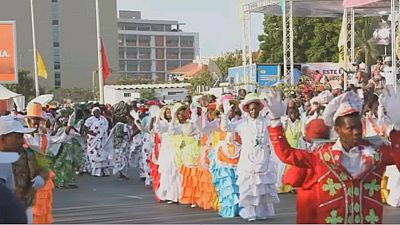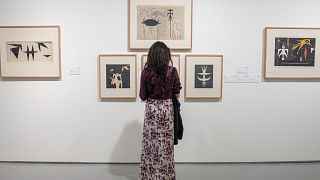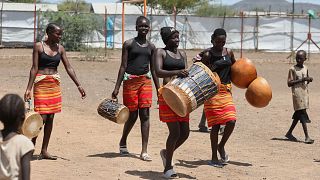Angola
The annual Angolan Carnival is one of the most important events in the country’s calendar, known to attract tourists and give Angolans a chance to showcase their culture, creativity, art and music.
The carnival has been celebrated since Angola was a Portuguese colony.
This year, 14 groups participated in the event that also saw them competing for prizes.
“It is necessary to win, because it is a competition after all. But in my point of view the most important thing is to try to motivate. We need to motivate the people, and we have to start to think about the future of the carnival. There are groups that already have very elderly people, so its important to think about how this will be passed on to the younger generation,” said Antonio Custodio, a representative of one of the dance groups.
The event is usually held ahead of Easter and marks the beginning of lent – about a month of fasting before the Christian Easter festival is celebrated.
In the past, the carnival performance was held simultaneously in various parts of the country, but recent years, has seen the event centralized in the capital, Luanda.
Celebrations have been low key partly because of financial difficulties facing the country.
“It’s true that the carnival is not celebrated as much as it was before. This is criticism that has to be made, especially towards the organ that runs and monitors the carnival. It is necessary to restore the popular spirit of the carnival. But the few people who went and the fans who showed up indicates that the event is not dead, it’s sleeping,” said Albino Carlos, an official at the country’s ministry of social communication.
The event also features a children’s parade as celebrations continued outside the public square with some children taking the procession to the beach.
Isaac Paxe, An education specialist agrees that although the festival has managed to preserve some elements of Angolan culture, traditions are slowly disappearing.
“The carnival we do dance today is not the same of the 1960´s. It is not the same of the 1970´s and this happening of the country to other cultures also plays the roles. If you now look the way the groups dress, there is a slight change. There is a kind of a mix of what we call our traditions,” he said.
The event was closed with an award ceremony that saw dance and music groups in various categories receive cash prizes of up to 3000 US dollars.














02:09
In a bid to aid its economy, Lebanon hopes to return to golden age of tourism
01:07
China's visa-free policy for five Latin American countries takes effect
02:01
Mali's Diarra Sidiki wins 2025 Tour du Togo
Go to video
Morocco's capital, Rabat, seeing uptick in luxury tourism
01:49
Tourists, wildlife attempt amicable co-existance at Cape Town harbour
04:07
Angolans celebrate annual carnival